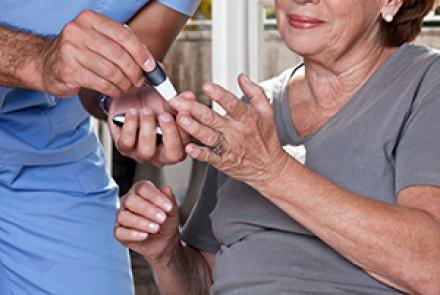This time in our Health by Numbers/Medical Tests series, Dr Shital Patel takes a look at our electrolyte levels in our blood. An electrolyte imbalance, commonly caused by loss of body fluids through prolonged vomiting, diarrhoea, sweating or high fever, can result in various health disorders, like restlessness, anxiety, kidney diseases or even cardiac arrest.
An Electrolyte Panel is a blood test that measures the common minerals in the body such as sodium, calcium, chloride, magnesium,…

Dr. Uma Ram, Director and OBGYN Seethapathy clinic and Hospital, Chennai shares tips for pregnant women to follow to ensure good sugar control, especially in times of Covid-19 lockdown which has restricted movement and is stressful.
One in five pregnant women we see have gestational diabetes or high sugars in pregnancy. A lock down can cause problems for them because they may not be able to exercise, get enough veggies or access blood tests. Here are a few tips to ensure good sugar control
- Walk on your terrace or inside your house especially after meals. If you have a step counter use it. Most smartphones have a step counter.
- Do upper body exercises at home, since they are a good way to help keep control of your blood sugars..
- The physical activity involved in household work can also help.
- Be conscious that diet is even more important if you can’t exercise as much. Do NOT succumb to having “just one sweet “. Do read Dietary approach to managing Gestational Diabetes
- This is a stressful time. It may be natural to feel worried or anxious. Don’t confuse that for hunger and seek out high calorie or sugared comfort food.
- Get a glycometer and check your sugars on it to keep track. Here are tips on choosing a glucometer.
- Mail in your reports or call in and talk to your doctors. See a primer on the new telemedicine guidelines.
- Routine scans may be cancelled but if you are on medication or sugars are poorly controlled, it is recommended that your doctor can keep a watch on you and do scans as required.
- If there is a BP monitor at home that’s well calibrated, use it to check your blood pressure as your routine check up frequency may be reduced. Women with Gestational Diabetes Mellitus(GDM) are at higher risk of developing BP in pregnancy so it’s important to keep an eye out for that too.
Related reading:

Director and OBGYn Seethapathy clinic and Hospital, keen on clinical research and empowering women with health information
Changed
13/Apr/2020
Community
Condition













